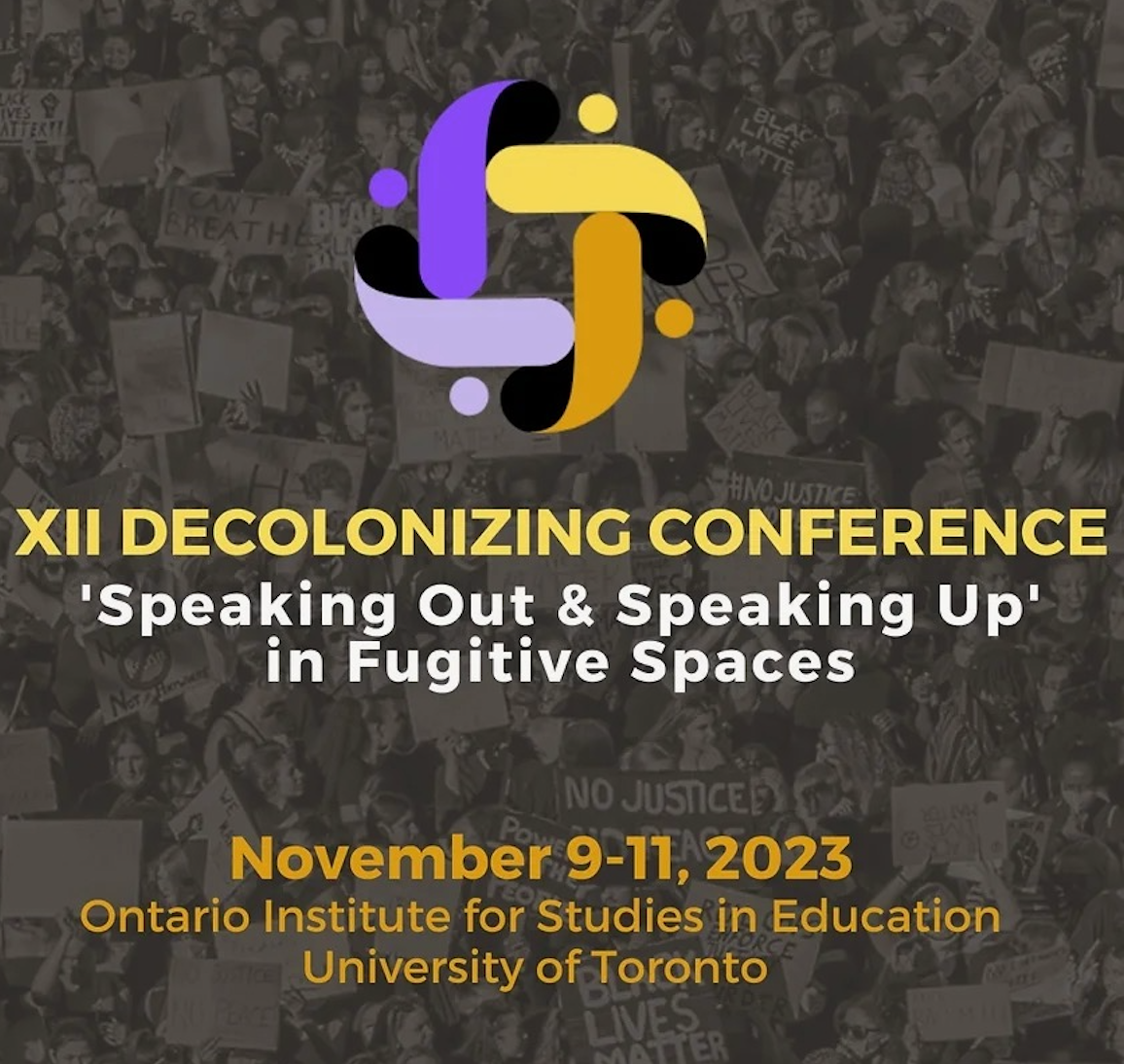Reflections from the UofT Decolonization Conference
“I learned that racism, like most systems of oppression, isn’t about bad people doing terrible things to people who are different from them but instead is a way of maintaining power for certain groups at the expense of others.” ― Alicia Garza, The Purpose of Power: How We Come Together When We Fall Apart
From November 9 to 11, students from Branksome Hall had the opportunity to attend a decolonization conference at the University of Toronto hosted by the Centre for Integrative Anti-Racism Studies. We attended the conference in partnership with students from the Kapapamahchakwew – Wandering Spirit School in Toronto. The conference’s mission was to create spaces for anti-racist discourse and to explore ways to decolonize Canadian institutions.
What I initially saw as an excuse to hang out with Ms. Hamilton all day became an opportunity to listen to leading thinkers speak about topics such as Black and Indigenous Futurisms, Resistance, Solidarity, Climate Justice, Youth Activist Politics, and more. The notebook that I tossed into my bag last minute soon became filled with scribbled notes, including my 6 main takeaways:
DEI work shouldn’t be window dressing
Many of the conference’s attendees were educators whose work focuses on anti-oppression. They shared their frustration with institutions that make broad claims, such as suggesting that change is in the works while failing to produce tangible results. Euphemisms such as diversity and equity are often used in place of words such as anti-racist or anti-white supremacy. Language matters and helps us to recognize and name our privileges. If we are not uncomfortable, we might ask ourselves, are we actually talking about anything? Naming injustice can help minorities feel supported by their community. How might we transform the safe spaces where we discuss current events and social issues into accountable spaces?
Cultivating discernment in schools
This conference emphasized the importance of developing critical thinking skills. In the age of deepfakes and Artificial Intelligence (AI), the most relevant competency is knowing how to differentiate between what is reliable and what is not. News is often framed in the media as objective and truth-telling, resulting in viewers consuming information passively. As students, we must learn how bias influences the ways in which the media frames the news. We must be able to critically evaluate what we are reading and watching so that we do not unconsciously inherit the biases that underpin the media coverage of current events.
Acknowledging the privilege of looking away
When figuring out how to navigate through different spaces, it is important to recognize where you hold privilege. Conference attendees were introduced to the Power Flower (see below), where the outermost petals represent dominant identities. If you hold dominant identities and find yourself quickly moving on after hearing about injustices, I encourage you to reflect on how you can use your privilege to change an issue that may not directly affect you. We must think about not only how we are implicated in issues but how we might be complicit in them. The first step is to identify your positionality in various spaces and ask yourself if you are aware of the biases we bring to different problems and situations.
Representation in positions of power
It was a common theme among the conference’s speakers that in Canada, racialized people are “marginalized with a smile.” It is often remarked that Toronto is the most diverse city, rich with multiculturalism. Though this is true, our city is not racially diverse in power. Our knowledge is often limited by our personal experiences and what we have been exposed to. We must assess whose voices we are listening to and who holds the decision-making power to make a change in an institution. Ideally, multiple perspectives are valued and included. Change needs to occur so that those in power represent the demographics of Toronto.
“The system isn’t broken; it was built wrong”
For centuries, people from underrepresented groups have been blocked from resources while white counterparts have generated wealth over generations. This is the basis of systemic inequities where minorities are disadvantaged within systems that were created to exclude them. Even if everyone stopped hating, systemic inequality would still exist. Hate is individual, and its dissolution alone cannot correct unequal systems. It is not enough to be kind to others while benefiting from the systems in our society entrenched with bias. It often falls on minorities to decolonize these systems, but administrators and people in power must find meaningful ways to reimagine our school structures.
The consequences of striving for white adjacency
White adjacency involves minorities attempting to increase their proximity to whiteness in order to access the white norms, traditions, and power structures that many depend on for opportunity and success. This fabricated sense of belonging is built based on one’s dissociation from parts of their social identity, with the goal of being accepted by or impressing people who hold power. Although this can increase one’s sense of possibility, striving to become an honorary white person means remaining secondary. Such actions reproduce patterns of white privilege, maintaining whiteness and its associated power as the ultimate aspiration.
The decolonization conference was an amazing opportunity to engage with anti-oppression work outside of the classroom and hear from the people who are changing the dialogue around race and inclusion in our society. I learned so much from leading thinkers and educators who are asking big questions about the critical issues we are facing. I hope these key takeaways ignite your curiosity, inspire you to seek more information, and prompt you to consider how we can all contribute to decolonization efforts.
